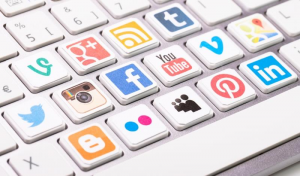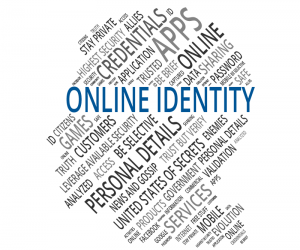 Is it Possible to Portray Professionalism Online?
Is it Possible to Portray Professionalism Online?

Before answering, another question is: What other version of yourself do you want to share on the Internet?
Online platforms are automatically thought of as social sites to connect, post, share, and like the newest dance trends or cute animal videos. Emotions, thoughts, politics, positivity, and negativity can all be viewed on a screen with just one scroll. With so much information and feelings happening at once, it can get people into trouble. The Internet and various social media platforms are often not viewed as a way to professionally network in your fields of interest. However by creating and actively using a professional account, or accounts with various social platforms, you stand out to future employees and co-workers. When used correctly and to your advantage, the online possibilities can expand greatly!
The term ‘portray’ is a strong and yet hesitant word to use in conjunction with the Internet. Who, or what, are you showing? Does it include your individual self, family, pride, your interests, job, or career? We, as humans, have many different and complex personas that each have their own place in the roles and places in the community. One of these identities includes showing our professionalism online in order to be easily accessed and assessable to others within the same communal field. Portraying a professional persona online is how future readers, employers, and interviewers take you seriously. Although maintaining a level of professionalism in person is tricky enough, it can be just as easy to translate it online!
Often, professionalism is only seen through LinkedIn, Academia.edu, and ResearchGate. Yet, there are numerous social media sites can be used to further your career! In 2017, Kidd published an article that focused on how to use the resources effectively. You can utilize the social platforms to connect interests, find information, and network with those in your field. By using Facebook, Twitter, Pinterest, and even Tumblr for professional utilization, you can create an endless database that has a professional identity. With these types of accounts, it is best to leave them open publicly for anyone to view. Obviously those within your network should be able to see your posts, but also students, those in related fields, anyone who has similar interests, and someone with curiosity.
Another way to portray professionalism online is to Google “tips for professional networking”, where you will receive an infinite amount of results. Although opening an account separate from your personal life is easy enough, it’s how to maintain it which is the tricky part. First connect with those already in your community, then broaden the network with alumni, vendors, professional organizations, and future employees related to your field. Facebook, Twitter, and other blogging opportunities are endless, and you don’t want to limit yourself or your networked audience. Microblogging is popular through Twitter for those quick promotions of infographics, blogs, YouTube videos, or article links. A full-fledged blog is for those on Blogger who expand more about what they shared on Twitter and can also include reviews on published work, ideas, and reviews about current projects all within your field. By remaining active in your career through social media, it shows the network that you are genuinely interested and dedicated.
Instead of viewing professional networking as a requirement and daunting task, it helps to think of it as game. Every day when you access your accounts and join discussions, you receive points. Each comment and share are worth more points, which circulates new ideas within your network. The more “points” you earn, just with any game, the more valuable you become professionally. Thus, making you larger and more prevalent in the network! If you put in the effort to take care of your online professional image, then others will treat you with respect and you will reap the rewards.
Branch out from the typical sites considered “professional” and include other social media sites in your toolbox. Don’t be afraid or limit yourself on the number of postings, adding to discussions, or sharing new ideas within the networks. By maintain your accounts and imagining that online networking is a game, you create an impactful and professional identity. Also, by Googling more tips and reading Kidd’s article, you create more chances for yourself to grow. Go against the social stigma about using social media only for your personal self, and instead use the resources to portray professionalism in your favor!
Sources
Kidd, Dustin. “Social Media Freaks: Digital Identity in the Network/ Society”. Westview, 2017.
Kumok, Zina. “Making Connections: How to Create and Cultivate Your Professional Network”. GoodCall. <www.goodcall.com/career/professional-network/#section5>.
Robert, David. “5 Reasons Your Professional Network is More Important than Your Job”. The Robert Half Blog. 20 Dec. 2016. <www.roberthalf.com/blog/salaries-and-skills/5-reasons-your-professional-network-is-more-important-than-your-job>.


 with a major in Athletic Training. Since my athletic days and receiving various injuries, I became interested in how the human body responds and adapts to various stressors. I enjoy and am forever curious about the biomechanics and fluidity of movements before, during, and after injury. I plan on graduating in May 2018, with hopes of receiving a job with the military, collegiate, or travel team setting. I will continue education online and complete both a sports psychology and kinesiology degrees.
with a major in Athletic Training. Since my athletic days and receiving various injuries, I became interested in how the human body responds and adapts to various stressors. I enjoy and am forever curious about the biomechanics and fluidity of movements before, during, and after injury. I plan on graduating in May 2018, with hopes of receiving a job with the military, collegiate, or travel team setting. I will continue education online and complete both a sports psychology and kinesiology degrees.